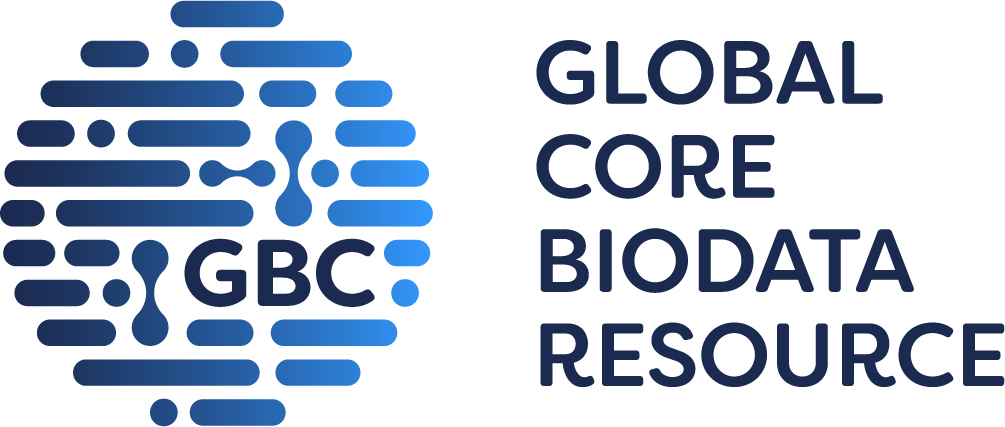
GtoPdb is requesting financial support from commercial users. Please see our sustainability page for more information.
Hypokalemic periodic paralysis, type 1; HOKPP1

GtoPdb Disease Summaries
This section gives an overview of the disease, and where available shows the following:
- Synonyms: Shows known synonyms for the disease.
- Description: Gives a basic description/definition of the disease.
- Database Link: External links to the same disease at the Disease Ontology, OMIM or Orphanet sites.
- Immunopharmacology comments: General comments about the target's role in immunopharmacology, provided by GtoImmuPdb curators.
- Associated with: Counts are displayed for the total targets the disease is associated with in GtoPdb. The counts of targets and ligands of immunological relevance associated to the disease are also shown.
More information can be found in the help pages.
✖| Disease ID: | 470 | |
| Name: | Hypokalemic periodic paralysis, type 1; HOKPP1 | |
| Associated with: | 1 target | |
| Synonyms |
| Hypokalemic periodic paralysis |
| Database Links |
|
Disease Ontology:
DOID:14452 OMIM: 170400 Orphanet: ORPHA681 |
Targets

GtoPdb Disease Summaries - Targets
Click on the target name to link to its detailed view page
Where available, information is display on the role of the target in the disease; drugs which target the disease and their therapeutic use and side-effects.
If there is mutation data curated in GtoPdb this is indicated, with a link back to the appropriate section on the target detailed view page
Immuno ligand interactions - If available, a table of immuno-relevant ligands is shown. These ligands have been curated as having an association to the disease and possess interaction data with the target in GtoPdb. The approval status of the ligand is shown, along with curator comments and an indication of whether the target is considered the primary target of the ligand.
More information can be found in the help pages.
✖| Cav1.1 | |
| Role: | Unknown |
| References: | 1,3,5-6,10,12 |
| Mutations: | Cav1.1 is associated with 9 mutation. Click here for details  |
Ligands

GtoPdb Disease Summaries - Ligands
Click ligand name to view ligand summary page
- Approved: If the ligand is an approved drug this is indicated, along with approval bodies.
- Immuno: Immuno icon indicates the ligand is immuno-relevant
Click the arrow in the final column to expand comments
- Immuno Disease Comments: Curatorial comments specifically added as part of GtoImmuPdb. They give more information on the association between the ligand and disease in the context of immunopharmacology.
- Clinical Use: General clinical comments relating to the ligand and may not necessarily be specific to the disease in question. With hyperlink to more details on the ligand summary pages.
- Bioactivty Comments: Curatorial comments specifically about the compounds biological activity - with hyperlink to more details on the ligand summary pages.
More information can be found in the help pages.
✖No ligand related data available for Hypokalemic periodic paralysis, type 1; HOKPP1
References
1. Caciotti A, Morrone A, Domenici R, Donati MA, Zammarchi E. (2003) Severe prognosis in a large family with hypokalemic periodic paralysis. Muscle Nerve, 27 (2): 165-9. [PMID:12548523]
2. Chabrier S, Monnier N, Lunardi J. (2008) Early onset of hypokalaemic periodic paralysis caused by a novel mutation of the CACNA1S gene. J Med Genet, 45 (10): 686-8. [PMID:18835861]
3. Fouad G, Dalakas M, Servidei S, Mendell JR, Van den Bergh P, Angelini C, Alderson K, Griggs RC, Tawil R, Gregg R et al.. (1997) Genotype-phenotype correlations of DHP receptor alpha 1-subunit gene mutations causing hypokalemic periodic paralysis. Neuromuscul Disord, 7 (1): 33-8. [PMID:9132138]
4. Hirano M, Kokunai Y, Nagai A, Nakamura Y, Saigoh K, Kusunoki S, Takahashi MP. (2011) A novel mutation in the calcium channel gene in a family with hypokalemic periodic paralysis. J Neurol Sci, 309 (1-2): 9-11. [PMID:21855088]
5. Jurkat-Rott K, Lehmann-Horn F, Elbaz A, Heine R, Gregg RG, Hogan K, Powers PA, Lapie P, Vale-Santos JE, Weissenbach J et al.. (1994) A calcium channel mutation causing hypokalemic periodic paralysis. Hum Mol Genet, 3 (8): 1415-9. [PMID:7987325]
6. Jurkat-Rott K, Lerche H, Lehmann-Horn F. (2002) Skeletal muscle channelopathies. J Neurol, 249 (11): 1493-502. [PMID:12420087]
7. Ke T, Gomez CR, Mateus HE, Castano JA, Wang QK. (2009) Novel CACNA1S mutation causes autosomal dominant hypokalemic periodic paralysis in a South American family. J Hum Genet, 54 (11): 660-4. [PMID:19779499]
8. Li FF, Li QQ, Tan ZX, Zhang SY, Liu J, Zhao EY, Yu GC, Zhou J, Zhang LM, Liu SL. (2012) A novel mutation in CACNA1S gene associated with hypokalemic periodic paralysis which has a gender difference in the penetrance. J Mol Neurosci, 46 (2): 378-83. [PMID:21845430]
9. Matthews E, Labrum R, Sweeney MG, Sud R, Haworth A, Chinnery PF, Meola G, Schorge S, Kullmann DM, Davis MB et al.. (2009) Voltage sensor charge loss accounts for most cases of hypokalemic periodic paralysis. Neurology, 72 (18): 1544-7. [PMID:19118277]
10. Ptácek LJ, Tawil R, Griggs RC, Engel AG, Layzer RB, Kwieciński H, McManis PG, Santiago L, Moore M, Fouad G et al.. (1994) Dihydropyridine receptor mutations cause hypokalemic periodic paralysis. Cell, 77 (6): 863-8. [PMID:8004673]
11. Striessnig J, Bolz HJ, Koschak A. (2010) Channelopathies in Cav1.1, Cav1.3, and Cav1.4 voltage-gated L-type Ca2+ channels. Pflugers Arch, 460 (2): 361-74. [PMID:20213496]
12. Striessnig J, Hoda JC, Koschak A, Zaghetto F, Müllner C, Sinnegger-Brauns MJ, Wild C, Watschinger K, Trockenbacher A, Pelster G. (2004) L-type Ca2+ channels in Ca2+ channelopathies. Biochem Biophys Res Commun, 322 (4): 1341-6. [PMID:15336981]






